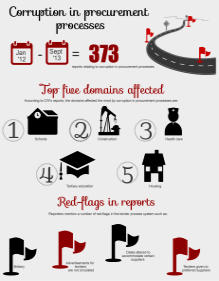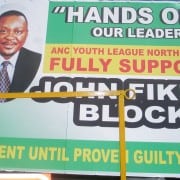|
Getting your Trinity Audio player ready...
|
Public procurement processes are often complex and transparency of the process is sometimes limited, therefore manipulation of tendering procedures is hard to detect. Corruption Watch has recently been involved in a number of investigations that highlight the ease with which tender processes can be tampered – the Mpumalanga circumcision tender, a case involving a massively inflated quotation at a municipality, and the scandal around the construction cartel, to name a few.
These investigations all involve manipulation for personal gain of the public procurement system, in some cases to the tune of millions.
The definition of public procurement encompasses all purchases of goods and services by public institutions in a country, and involves contracts between the government and the private sector in a variety of areas such as health services, the military, construction, etc. Reliable procurement practices transform funds into hospitals, schools and roads.
Procurement accounts for a large part of public resources and thus it is important that the tender procedures occur in an accountable, transparent and well-managed way.
Corruption in public procurement takes away benefits meant for citizens, and lowers the levels of public trust and confidence in the government. It can also be linked to service delivery protests and the erosion of honest competitive bidding.
South Africa loses about R25- to R30-billion of the annual government procurement budget to tender corruption, and thus Corruption Watch has decided to make this one of its focus areas for 2013.
Corruption is rife in metros
Since the launch of Corruption Watch in January 2012, 373 complaints have been lodged with the civil society organisation alleging corruption in public procurement.
In terms of provincial spread, 42.4% of the reports came from Gauteng, with all three metropolitans in the province heavily implicated in graft allegations, accounting for 94 complaints out of the total. The highest number of corruption reports concerning metros implicated the City of Johannesburg, with the City of Tshwane following next.
Our interactive map below shows the number of reports alleging tender corruption that have been submitted to Corruption Watch, categorised according to the metro involved:
Blowing the whistle
A Corruption Watch reporter blew the whistle on a company, later found to be involved in the construction corruption case: “The cost of pipeline sections is hundreds of millions yet during the tender process for construction of the pipelines, there is indication on numerous occasions from [the state-owned water management entity] that the pipeline materials shall be free issued to building contractors. The piping materials are exclusively supplied by the two suppliers in a collusive anti-competitive nature. No other suppliers are called to quote on supply of these bulk materials; however they have ability to supply.”
The scandal broke in early 2013. In a submission made to the Competition Tribunal, Corruption Watch added its voice to those condemning the collusive activities and lauding the Competition Commission for levying hefty fines – totalling R1.5-billion – to the 15 companies implicated in the cartel. Corruption Watch called for all parties affected by the cartel’s actions to lay criminal charges against the construction companies for damages suffered.
A reporter submitted the following: “Our company is a registered Vendor to the DR JS Maroka municipality. In the past we received orders and payment from them. However, we have been advised that orders will now be placed via a 3rd party for the municipality on ourselves. It so happened that [a company] called us to supply glassware that we previously quoted the municipality at R 1 915. Confusion at the municipality caused the 3rd party order for the goods to be faxed to us…however…the price to the municipality suddenly increased to R 23 996.”
Corruption Watch investigated the allegations, and as a result, three officials from the municipality were suspended.
Another reporter expressed his/her concerns: “The Municipal Manager & the members of the ANC were involved in the illegal tender procurement. The contractor paid bribes to the Municipal Manager and the other members of the Municipality – I I was present during their meeting when they were discussing about their ‘cuts’, I have reason to believe that the correct tender process was not followed.”
These are all extracts from real reports involving procurement, which have been submitted in the last 18 months.
Trends in reports
According to Corruption Watch data, the trends that emerge from submitted reports indicate that:
- Bribery is rampant in tender processes;
- Relevant committees indicate a preference for a certain supplier;
- Tenders are not being advertised or circulated;
- Dates are altered to accommodate certain suppliers;
- Appointment of suppliers whose scores do not reflect that they are the best applicants.
Coming up
Part two of our three-part series takes a look at the different forms that tender corruption can take.










